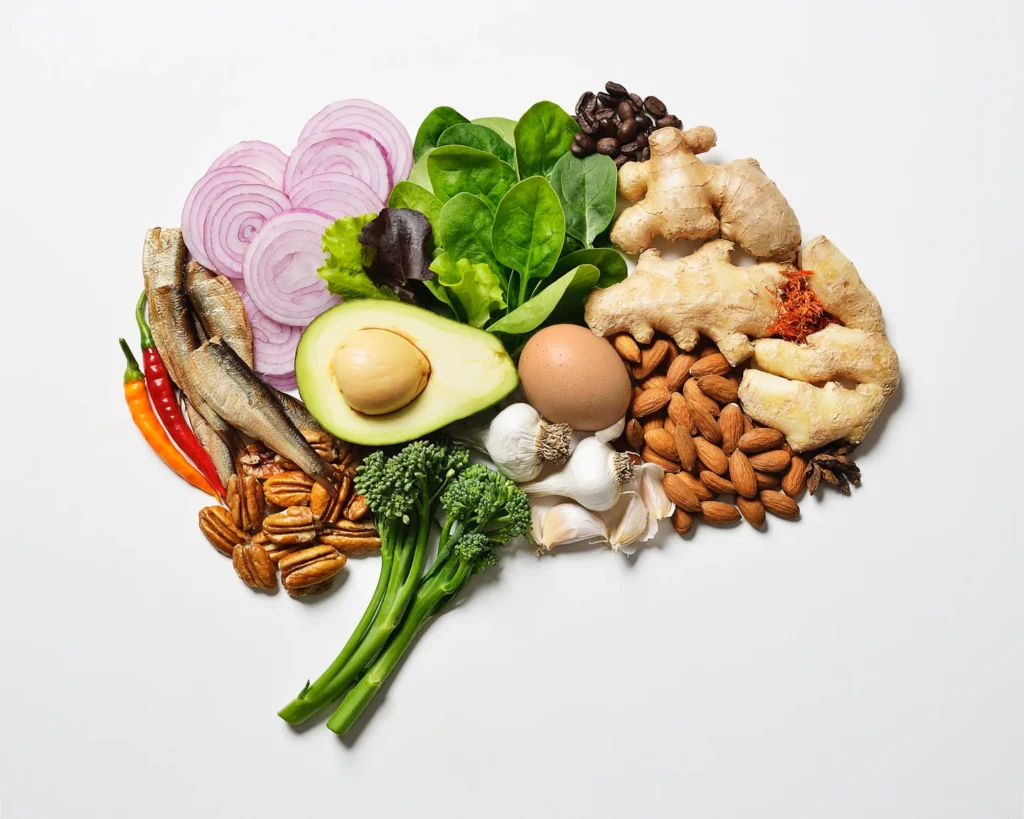Top Brain-Boosting Foods to Eat After 40, According to Experts

Best Brain Foods to Eat After 40, According to Experts
As we age, many of us notice subtle changes in memory, focus, and mental clarity. This so-called “brain fog” can be frustrating, especially for those navigating menopause, recovering from long COVID, or simply dealing with the natural effects of aging. But what if your diet could help keep your brain sharper, longer?
According to neurologists and dietitians, what you eat can play a major role in supporting cognitive function and slowing down age-related decline.
How the Brain Changes After 40
“Our brains naturally experience reduced blood flow and lower levels of key neurotransmitters like dopamine and serotonin as we age,” says Dr. Alexander Zubkov, a board-certified neurologist at 1MD Nutrition. Over time, oxidative stress and low-grade inflammation also accumulate, which can negatively impact memory and focus.
Still, aging isn’t all bad news. “While certain cognitive functions may decline, vocabulary and crystallized intelligence—our accumulated knowledge—can improve with age,” explains Yuko Hara, director of aging and Alzheimer’s prevention at the Alzheimer’s Drug Discovery Foundation (ADDF).
The Link Between Diet and Brain Health
“Food is fuel for the brain,” says Zubkov. “A nutrient-dense diet helps build neurotransmitters, supports brain cell repair, and protects against oxidative damage.” Hara adds that antioxidants and anti-inflammatory compounds in food are crucial for preserving cognitive health.
Top Brain-Boosting Foods to Add to Your Diet
True Teas (Green, Black, White, Oolong)
Derived from the Camellia sinensis plant, these teas contain powerful antioxidants like catechins and flavonoids. They also offer L-theanine, which promotes calm alertness, and caffeine for mental sharpness. Green tea, in particular, has been linked to better cognitive performance in older adults.
Walnuts
These brain-shaped nuts are rich in antioxidants, magnesium, and ALA omega-3 fatty acids. “Studies show that higher ALA levels correlate with better brain energy metabolism, especially in those at risk for Alzheimer’s,” says dietitian Lauren Manaker.
Mushrooms
Mushrooms are packed with ergothioneine, a compound with antioxidant and anti-inflammatory effects. They also offer essential B vitamins and amino acids that help regulate brain function and energy production.
Fatty Fish
Salmon, sardines, and mackerel are high in DHA, an omega-3 fat essential for brain cell integrity. Regular consumption supports memory and slows cognitive decline.
Blueberries
These berries are full of anthocyanins, which reduce oxidative stress and may enhance memory.
Leafy Greens
Spinach, kale, and collard greens are high in folate, vitamin K, and lutein—nutrients shown to slow age-related cognitive decline.
Foods to Avoid for Better Brain Health
Not all foods support brain function. Dr. Joshua Helman, a Harvard-trained cognitive health expert, warns against ultra-processed items. “Foods high in added sugars, refined carbs, trans fats, and omega-6 oils increase inflammation and insulin resistance in the brain,” he says.
These ingredients are so detrimental that Alzheimer’s is sometimes referred to as “type 3 diabetes.”
Helman also advises limiting high-sodium foods, artificial additives, and those with nitrates. “Even moderate exposure to pesticides and heavy metals in food and water can impair memory and focus over time,” he adds.
Caring for your brain through food is a powerful and proactive step—especially after 40. By prioritizing nutrient-dense, anti-inflammatory foods and avoiding ultra-processed products, you can give your brain the tools it needs to stay sharp well into later life.
As always, consult with your healthcare provider for personalized guidance. But one thing is clear: healthy aging starts on your plate.
Source: The Huff Post
: 238







